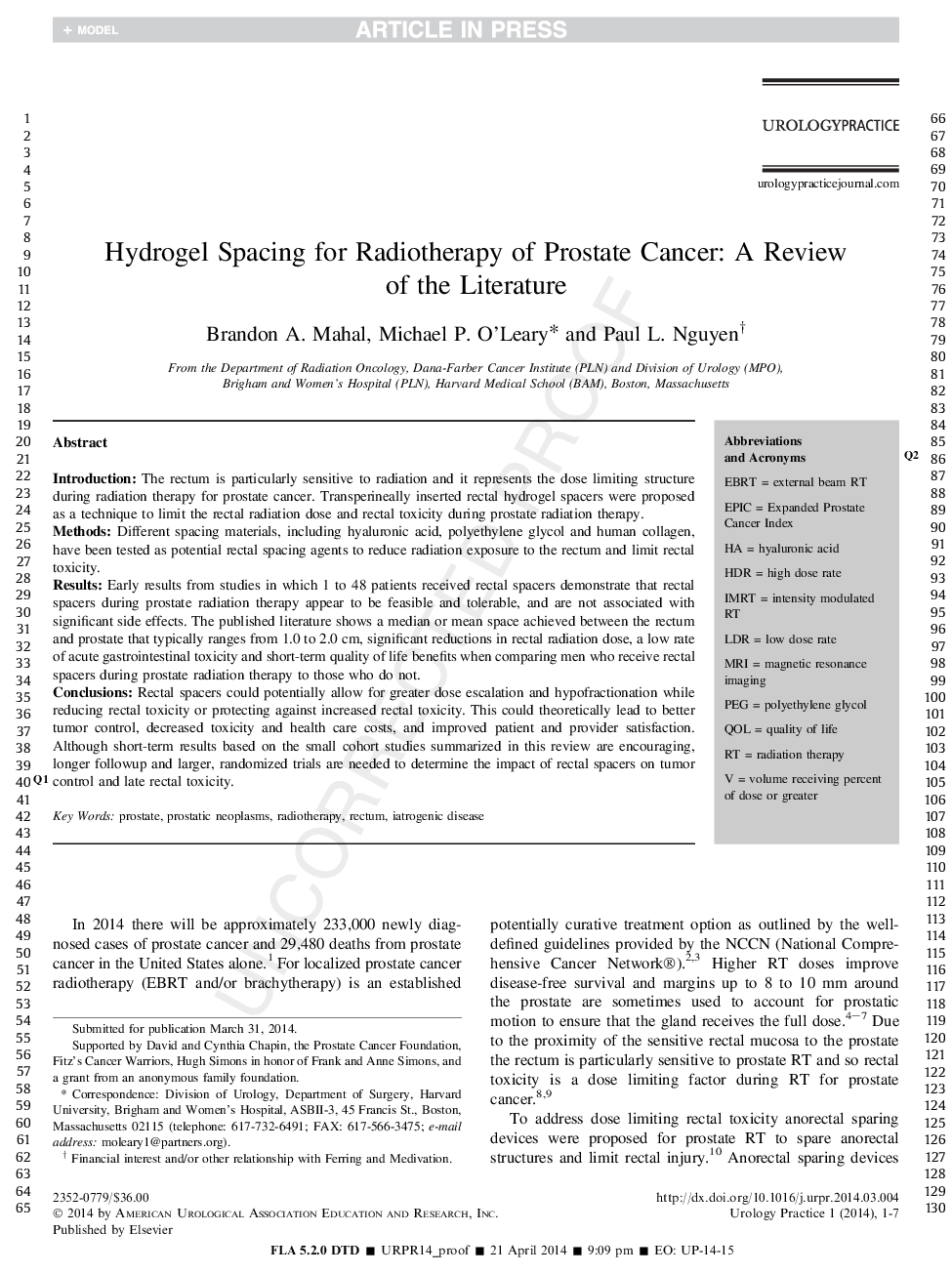| Article ID | Journal | Published Year | Pages | File Type |
|---|---|---|---|---|
| 4277135 | Urology Practice | 2014 | 7 Pages |
Abstract
Rectal spacers could potentially allow for greater dose escalation and hypofractionation while reducing rectal toxicity or protecting against increased rectal toxicity. This could theoretically lead to better tumor control, decreased toxicity and health care costs, and improved patient and provider satisfaction. Although short-term results based on the small cohort studies summarized in this review are encouraging, longer followup and larger, randomized trials are needed to determine the impact of rectal spacers on tumor control and late rectal toxicity.
Keywords
Related Topics
Health Sciences
Medicine and Dentistry
Urology
Authors
Brandon A. Mahal, Michael P. O'Leary, Paul L. Nguyen,
